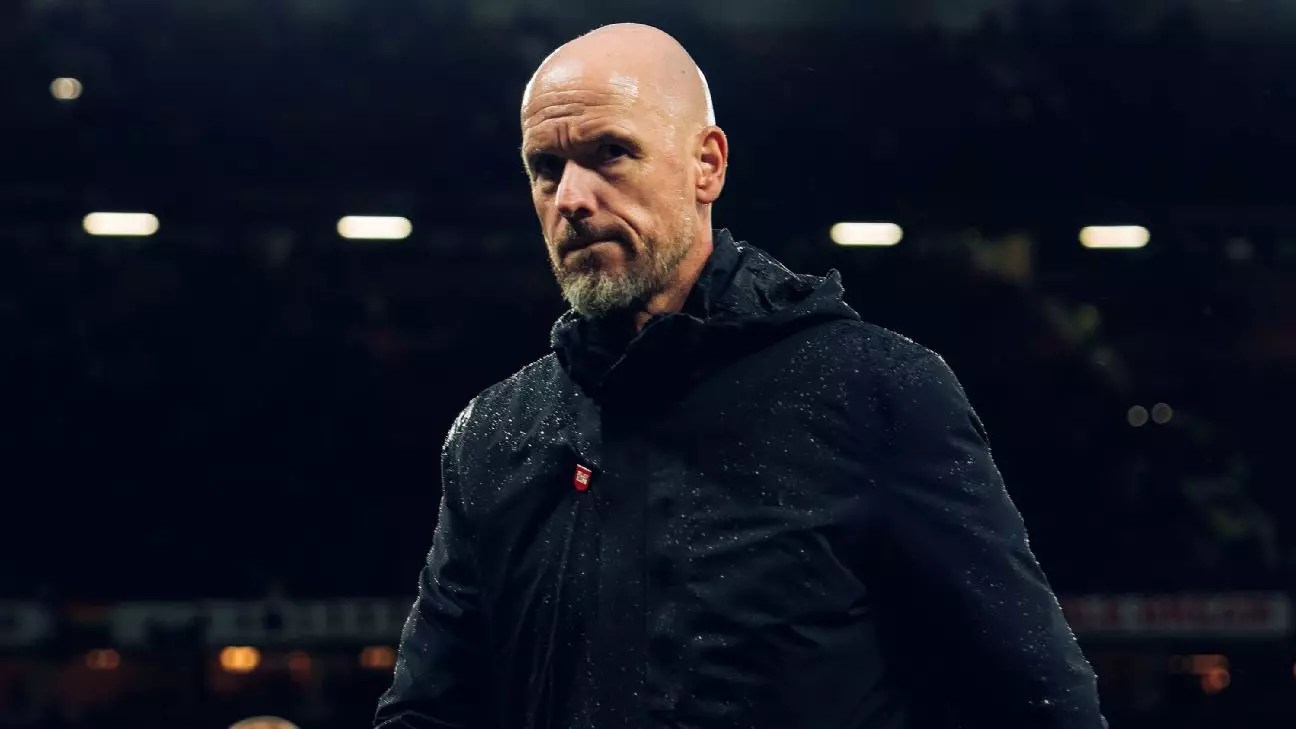As Erik ten Hag navigates his managerial journey at Manchester United, the sense of urgency grows palpable. With each match day that passes and every disappointing performance etched into the club’s record, ten Hag finds himself battling not just rival teams but also the ominous clouds of discontent hovering over Old Trafford. The latest episode of this saga—a disheartening 3-0 defeat by Tottenham Hotspur—left fans and pundits alike questioning the viability of his leadership. This humbling loss marks United’s third defeat in just six Premier League fixtures, placing the club in a precarious 12th position and signaling a stark departure from its historically dominant status in English football.
The comparison between ten Hag and his managerial counterparts—those such as Unai Emery, Ange Postecoglou, Arne Slot, and Enzo Maresca—underscores a troubling narrative: winning is often a more decisive factor than time or patience for managers in modern football. Ten Hag’s search for excuses is becoming an all-too-frequent refrain in his press conferences, yet the accomplishments and trajectories of others illuminate his own failings.
In the immediate aftermath of the embarrassment against Spurs, ten Hag pointed to the pivotal moment of Bruno Fernandes’ first-half red card as a turning point in the match. While it is certainly plausible that the sending-off affected United’s morale and tactical approach, this viewpoint is steeped in a troubling trend of selective recollection. Spurs dominated the match prior to that key incident, demonstrated by their comprehensive possession statistics and multiple goal-scoring opportunities—factors conveniently overlooked by ten Hag.
As he finds himself creatively maneuvering his narratives, ten Hag has resorted to blaming injuries for the team’s inconsistencies. This may resonate as a legitimate concern, yet it feels less convincing when juxtaposed with the harsh realities faced by countless other clubs throughout the league. Each season, squads must absorb the impact of injuries, yet many show resilience in overcoming these hurdles, a trait that has increasingly eluded ten Hag’s United.
In two tumultuous years, the specter of mediocrity looms large, accentuated by both poor league finishes—their worst in a historically rich Premier League tenure—and a collection of humiliating results. Numbers don’t lie; a triumphant accomplishment in cup competitions can only dull the sting of recent performances, which are characterized by a lack of scoring prowess and an alarming frequency of concessions.
The financial investment made in the squad under ten Hag’s watch raises further questions about accountability. With a staggering £550 million spent on player acquisitions since his arrival, the manager’s argument of needing resources to strengthen the team is increasingly substantiated. The glaring disparity between United’s expenditure and their sporting achievements amplifies the scrutiny on ten Hag, leading to a palpable impatience both internally and among the fans.
As expectation layers have piled on top of financial outlay, United’s leadership team, consisting of minority owner Jim Ratcliffe and director of sport Dave Brailsford, remain publicly supportive. However, privately, murmurs of discontent arise, aligning with reports indicating that ten Hag’s job hangs by a thread. While the rhetoric from the board remains optimistic, the tangible performance on the pitch reveals a stark disconnect.
The burgeoning contrast between ten Hag and the likes of Emery at Aston Villa and Postecoglou at Tottenham creates a reality that is difficult to ignore. Each of the aforementioned managers has either maintained or re-established competitive positions within their respective squads, steering their teams towards success despite earlier obstacles. Their narratives prove that effective leadership can indeed yield rapid results, a legacy that ten Hag now struggles to emulate.
The task ahead of him is monumental. In the coming weeks, pivotal matches like the Europa League clash against FC Porto and the Premier League showdown against Aston Villa beckon him and his squad to restore some semblance of credibility. The window for redemption is swiftly narrowing, with growing dissatisfaction hanging heavily in the air.
Ten Hag remains resolute, maintaining that he doesn’t fear for his position. However, the increasingly tempestuous waters threaten to capsize his tenure if the ship fails to right itself. With a squad rife with talent yet seemingly devoid of chemistry, the blame game won’t serve as a long-term strategy. Time is not on his side as he attempts to navigate these tumultuous waters. If he is to secure his legacy at Manchester United, decisive action is paramount. The clock is ticking, and the iceberg looms ever closer.


Leave a Reply